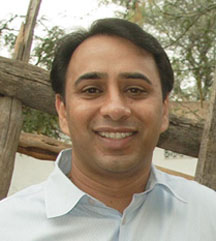NEW DELHI, (Reuters) – When Vikram Akula came to speak at the World Economic Forum’s India Summit in New Delhi last year, it was clear that the once-thriving banker to the poor was beginning to lose his sheen.

Dressed in his trademark traditional cotton tunic, trousers and open-toed slippers, the Yale-educated microfinance pioneer faced uncomfortable questions from the audience on aggressive loan recovery practices and high interest rates, and was later escorted away from reporters.
Akula, 42, named among the 100 most influential people in the world by Time magazine in 2006, on Wednesday resigned as chairman of SKS Microfinance, the lender of tiny loans to the poor he founded in 1997.
It marked a big fall for a man whose idea of making profit from small loans won the support of high-profile investors such as George Soros and Goldman Sachs. His company has been dubbed by some as the “Starbucks of Microfinance”.
Backers say commercial microfinance makes lending attractive to poor borrowers who would otherwise be at the mercy of unregulated moneylenders who are known to charge interest rates as high as 100 percent.
“Doing well by doing good is not only acceptable, it’s absolutely ethical. In fact, I believe that offering microfinance as a highly commercial, for-profit venture is the more ethical choice, by far,” Akula writes in his book “A Fistful of Rice; My Unex-pected Quest to End Poverty Through Profitability”.









